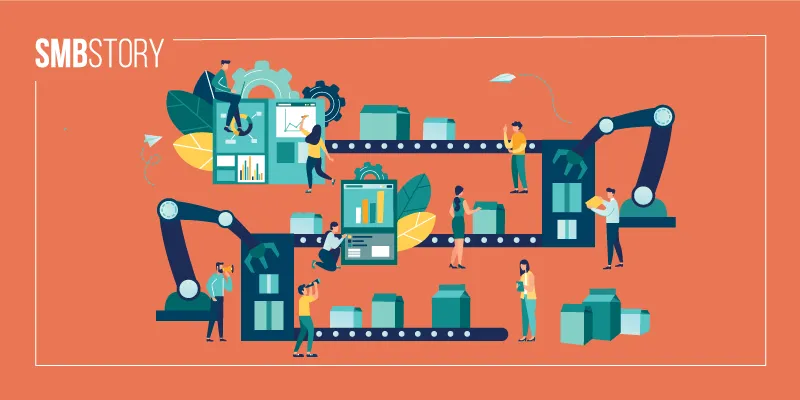Facilitating the ease of doing business and sustainability of business operations for MSMEs in the post-COVID world
Given the MSMEs’ key role in promoting manufacturing, employment, and entrepreneurial opportunities, the sector needs sustained support to boost inclusive development.
The COVID-19 pandemic has been the world’s worst economic crisis since the Great Depression in 1929. With millions of workers suffering job losses and salary cuts, COVID-19 completely dented the demand and consumer confidence.
While businesses were hit hard by lockdowns and social distancing strictures, MSMEs remained the worst affected. Given the sector’s huge value in the nation’s socio-economic growth along with the enormous employment and entrepreneurial opportunities it generates pan-India, putting the segment on the fast track to growth is imperative in the national interest.
MSMEs also contribute majorly to India’s inclusive development as the sector is complementary to big industries, acting as ancillary units providing various products and services.
Disproportionate pandemic impact
According to the Dun & Bradstreet COVID-19 Commerce Disruption Tracker, the coronavirus outbreak impacted MSMEs disproportionately. D&B’s analysis of approximately 3,000 organisations reveals that MSMEs’ median net sales dropped by 47 percent year-on-year during the first quarter of FY21 compared to the 43 percent contraction seen in large companies.
Likewise, large companies reported a median growth rate of eight percent in net sales during the third quarter of FY21 whereas MSMEs barely notched up two percent growth.
Acknowledging this scenario, the Centre and the RBI have been announcing a series of measures to help MSMEs. In the Budget for 2021-22, the Centre allocated more than double the earlier outlay for the sector, going from Rs 7,572 crore in FY21 to Rs 15,700 crore in FY22.
Moreover, under GECL (Guaranteed Emergency Credit Line), with 64 percent of the total outlay for the sector, the allocation of Rs 10,000 crore will help MSMEs address operational liabilities and restart businesses. Likewise, the higher outlay for the Prime Minister Employment Generation Programme, with 13 percent of the allocation for MSMEs, will aid in supporting new self-employment ventures.
The Budget has also undertaken support initiatives for the sector in two vital areas – ease of doing business (EoDB) and access to finance.
The EoDB focus is most visible via various steps such as revising the definition of small companies, raising the audit threshold limit, decriminalising the LLP (Limited Liability Partnership) Act, incentivising OPCs (one-person companies) and suchlike.
Also, the proposal to augment the NCLT (National Company Law Tribunal) framework, implementing the e-Courts system, introducing alternative means of debt resolution along with a special framework for MSMEs, together with steps to strengthen financial institutions’ balance sheets are all bound to ease MSMEs’ credit constraints.

Making MSMEs more competitive
Nonetheless, for a segment that employs 40 percent of the country’s non-farm workforce, more measures can be taken to facilitate a faster recovery. For instance, a level-playing field must be created and MSME exporters’ cost competitiveness boosted. These factors will help curb imports of goods where robust indigenous capabilities exist and also help exporters become more competitive globally.
Additionally, a reasonable compliance level for the sector will increase its on-ground EoDB quotient.
Finally, financial aspects apart, two other elements call for close attention to make MSMEs genuinely competitive – access to markets and digital transformation.
Coming to the first, business information platforms can be instrumental in expanding market access for companies by minimising information asymmetry issues and lowering the sunk costs of venturing into untapped markets.
A study by Inter-American Development Bank researchers indicated that a firm’s chances of exporting to new markets rose by 0.07 percent with every additional day spent on business information platforms.
This brings us to the digital transformation aspect. Although the pandemic has accelerated the digital transformation of most entities by a few years, MSMEs are yet to properly exploit digital technology. Achieving digital prowess will help the segment in deploying varied digital solutions to promote better business outcomes.
Apart from enhancing operational efficiencies, MSMEs will also be positioned to tap wider markets, nationally and internationally. In an increasingly tech-savvy world, there is no better way of attracting more customers and generating greater revenues.
Edited by Megha Reddy








1552049795284.png?mode=crop&crop=faces&ar=1%3A1&format=auto&w=1920&q=75)
